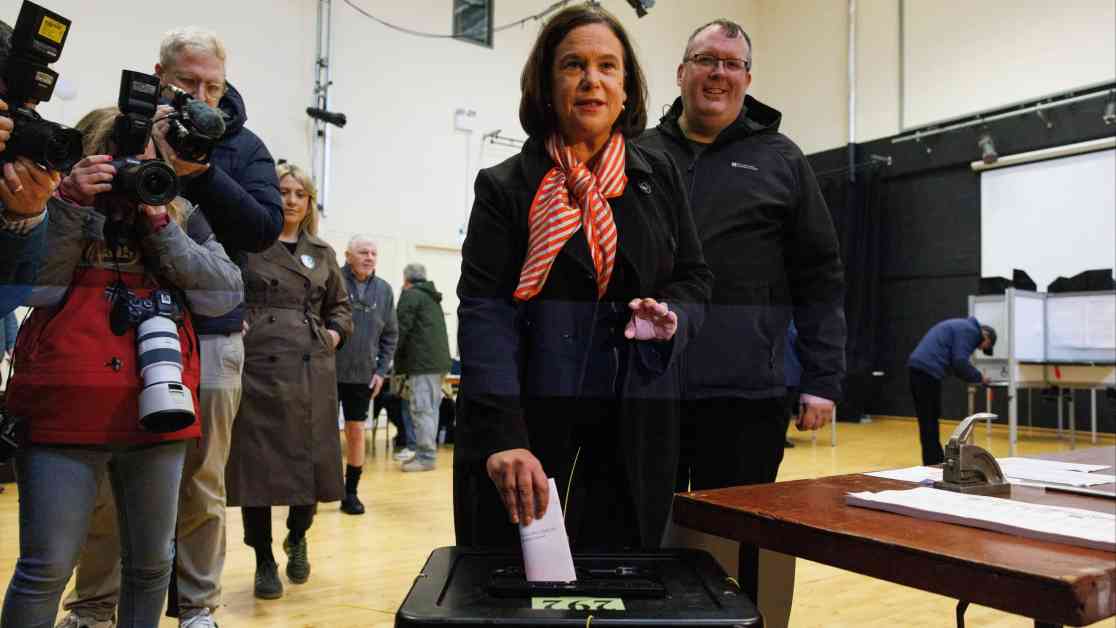In the recent Ireland General Election, Sinn Féin has emerged as the leading party according to a narrow victory in the exit polls. This unexpected outcome has surprised many political analysts and has sparked discussions about the future of the country’s government.
Sinn Féin, a left-wing nationalist party, has seen a surge in popularity in recent years, with many voters attracted to their anti-establishment stance and promises of social reform. Their strong showing in the exit polls indicates that they have resonated with a significant portion of the Irish electorate.
The other major parties, Fine Gael and Fianna Fáil, have traditionally dominated Irish politics, but they have seen a decline in support in this election. This shift in power dynamics could lead to a period of uncertainty as the parties negotiate potential coalition agreements to form a government.
The outcome of the election has raised questions about the future direction of Irish politics and the impact it will have on key issues such as healthcare, housing, and Brexit. Sinn Féin’s success could signal a desire for change among the Irish people and a push for more progressive policies.
As the country awaits the final results of the election, all eyes are on Sinn Féin to see how they will navigate the complex process of forming a government. Their victory in the exit polls has set the stage for a new chapter in Irish politics, one that could have far-reaching implications for the country and its citizens.
In the coming days and weeks, we can expect intense negotiations between the parties as they seek to find common ground and build a stable government. The future of Ireland hangs in the balance, and the decisions made in the aftermath of this election will shape the country’s trajectory for years to come.






















